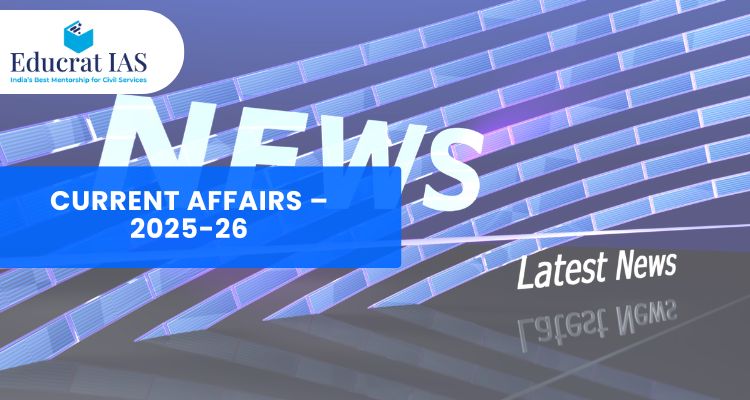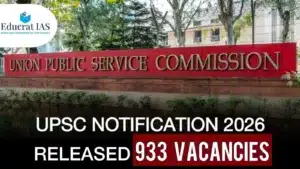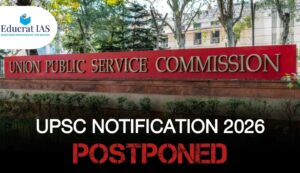For aspirants in Kolkata and across India, the 2025-26 cycle brings a fresh wave of developments in geopolitics, economy, technology, and social policy. This blog is your one-stop guide to the most relevant issues shaping India and the world.
Key Themes in Current Affairs 2025-26
1. Global Geopolitics and India’s Position
India’s role in the global arena has grown remarkably. From its active stance in BRICS+ expansion to deeper involvement in Indo-Pacific alliances, aspirants must track India’s diplomacy.
- Russia-China equation and its impact on South Asia.
- India’s participation in climate change summits and renewable energy leadership.
- Strengthening ties with Africa and Latin America through trade and technology exchange.
👉 Before you move on — remember this: Questions in UPSC prelims often link international events directly to India’s national interests.
2. Indian Economy: Growth with Challenges
The Indian economy continues to be one of the fastest growing globally. But challenges remain.
- Digital economy & fintech reforms
- Push for green energy transition
- Rising concerns over inflation and rural distress
- Kolkata’s rising importance as an IT and education hub in eastern India
For aspirants, this means connecting economic policies with GS Paper 3 topics like inclusive growth and sustainable development.
3. Science & Technology: The AI and Space Race
From ISRO’s upcoming missions to breakthroughs in AI regulation, 2025-26 is shaping into a year of science-led debates.
- Chandrayaan-4 preparations
- Quantum technology & cybersecurity concerns
- AI governance frameworks in India
- Kolkata-based start-ups contributing to edtech and AI solutions
Aspirants must not just know the facts, but also the ethical, social, and policy dimensions.
4. Environment and Climate Change
Climate-related disasters are now frequent, especially in eastern India and coastal Bengal. Issues that need attention:
- Impact of Bay of Bengal cyclones on Kolkata and nearby regions.
- India’s commitments at COP30 and beyond.
- Push towards renewable energy adoption and carbon neutrality.
- Balancing urban growth in Kolkata with green sustainability.
But wait — there’s more you should know… UPSC often frames questions around local climate issues with national policy linkages.
5. National Politics and Governance
The political landscape in 2025-26 is highly dynamic.
- Implementation of Uniform Civil Code debates.
- Electoral reforms and the role of Election Commission.
- Federal challenges between Centre and States.
- Policies in West Bengal governance impacting regional dynamics.
UPSC aspirants in Kolkata must pay close attention to how regional issues connect with national debates.
6. Social Issues and Reforms
Current affairs are not just about policies—they are about people.
- Women’s empowerment and new legal safeguards.
- Health reforms focusing on AI-driven healthcare delivery.
- Education reforms and the role of NEP 2020.
- Social justice debates around reservation and inclusion.
Kolkata, with its rich intellectual and reformist history, continues to be a hub for such movements.
7. International Organizations and Multilateral Engagements
Understanding India’s role in multilateral bodies is vital.
- G20 Presidency follow-ups.
- BRICS+ and new member inclusion.
- India at the UN Security Council reforms debate.
- Regional cooperation in SAARC and BIMSTEC.
Each of these themes links directly to GS Paper 2 and essay preparation.
How to Prepare for Current Affairs in 2025-26
- Read daily newspapers like The Hindu and Indian Express.
- Follow monthly magazines and Educrat IAS Current Affairs compendiums.
- Use revision-friendly tools like mock quizzes and answer writing sessions.
- Link local issues in Kolkata (floods, metro expansion, port trade) to national frameworks.
👉 For a deeper dive, explore our blog on Civil Society in Indian Democracy and BRICS+ Expansion.
FAQs on Current Affairs – 2025-26
Q1: How important are current affairs for UPSC preparation in 2025-26?
A: Extremely important. They directly impact prelims, mains, and even interviews. Questions often link static topics with dynamic events.
Q2: Should I focus on Kolkata-specific current affairs?
A: Yes. Regional issues often appear in interview stages and essay papers, especially for candidates from West Bengal.
Q3: How far back should I cover current affairs?
A: At least 12–18 months before the exam. That means starting from mid-2024 for the 2025 mains.
Q4: What’s the best source for UPSC-friendly current affairs?
A: Trusted newspapers, PIB releases, and Educrat IAS Current Affairs notes designed for aspirants.
Q5: How do I integrate current affairs into answer writing?
A: Use facts, data, and examples. Always link events with constitutional, economic, or social perspectives.
Conclusion – Stay Ahead, Stay Informed
Current affairs for 2025-26 are more than just headlines; they are the pulse of change. For a serious aspirant, every cyclone in Bengal, every global summit, and every policy reform is a potential UPSC question.
👉 Need help staying updated? Let’s make it easier. Call us today at +91 91473 88921 or explore our Current Affairs Programs designed specifically for UPSC aspirants in Kolkata and nearby areas.
Stay informed. Stay confident. Stay ahead with Educrat IAS.





